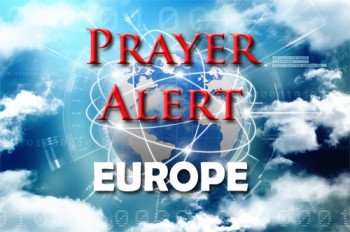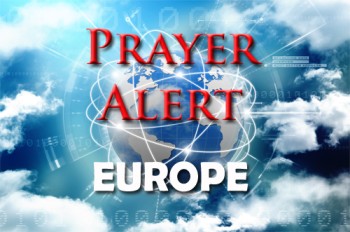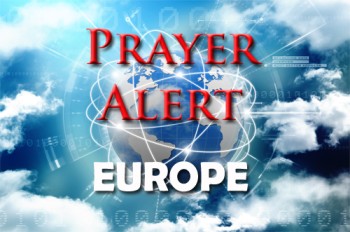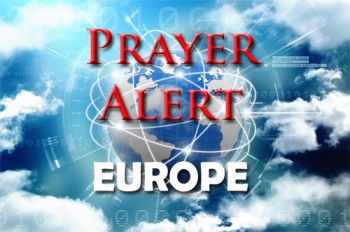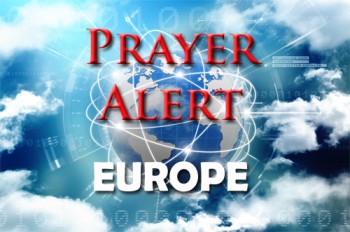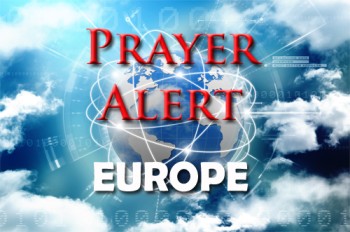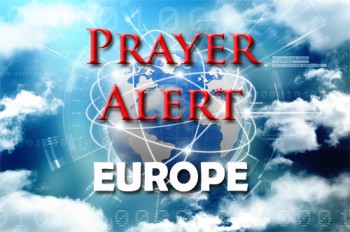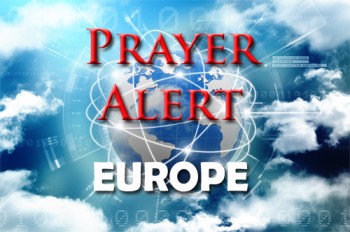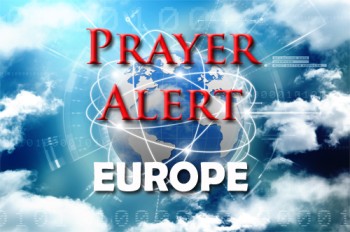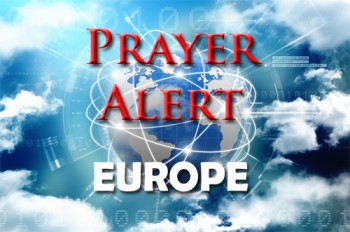Displaying items by tag: Europe
Turkey: key opposition leader arrested
The mayor of Istanbul, Ekrem Imamoglu, a key opposition leader, has been arrested days before he was to be selected as a presidential candidate. Along with 100 others, he has been charged with corruption and aiding a terrorist group. The arrest comes as part of a major crackdown nationwide in recent months, targeting opposition politicians, municipalities, journalists and figures in the entertainment industry. It has triggered nationwide protests, with police using force to disperse crowds. The government has imposed four days of restrictions in Istanbul, banning public gatherings and limiting internet access. The opposition sees this as a politically motivated move to weaken Imamoglu’s challenge to president Recep Erdogan, whose party was recently defeated in elections in Istanbul and Ankara. The government denies interference, insisting on judicial independence. Imamoglu has faced other challenges, including the annulment of his university degree, which would disqualify him from running. The international community has condemned the arrest, warning of Turkey’s increasing authoritarianism.
North Macedonia: protests after 59 die in nightclub fire
North Macedonia is in mourning after a devastating nightclub fire in Kočani killed 59 people, most of them young. As grief turns to anger, thousands have taken to the streets demanding justice and an end to corruption. The nightclub, Pulse, was found to have been operating illegally with an invalid licence obtained through bribery. Safety violations, including a lack of fire exits, an inflammable ceiling, and no fire alarm, contributed to the disaster; there might have been 1,500 in the venue, which had an official capacity of 250. Many victims perished in the crush as they tried to escape. Authorities have detained twenty individuals, including a former economy minister and state officials. The government has declared seven days of mourning, while protests continue across the country, pressuring officials to address corruption. Prime minister Hristijan Mickoski vowed swift justice, calling the situation ‘shocking’. Continuing protests are putting further pressure on the government to stop the corruption which has now cost the 1.8-million strong nation so many young lives.
Ukraine: Russia considers US ceasefire proposal, claims it is regaining Kursk region
US officials have arrived in Moscow to discuss a proposed thirty-day ceasefire between Russia and Ukraine. Special envoy Steve Witkoff hopes to persuade Russia to agree to the deal, which Ukraine accepted earlier this week after talks in Jeddah. The Kremlin confirmed discussions were planned but gave no details. US secretary of state Marco Rubio said that the ceasefire decision now rests with Russia, while Donald Trump warned of financial consequences if Russia rejects peace. Meanwhile, Russia claims to have recaptured 86% of the Kursk region, which Ukraine invaded last year. Vladimir Putin, visiting the area, has reportedly ordered a full military push to reclaim all lost territory. Events this week show a remarkably swift turnaround from a week ago: see
Portugal: voter frustration as another election is called
Voters in Portugal are growing frustrated as another snap election looms, with little hope for stability. Prime minister Luis Montenegro’s centre-right government collapsed after losing a confidence motion, forcing the president to call a new parliamentary election, probably in May. This will be the third election in three years. Many believe the political elite have failed for decades and fear worsening instability. One political analyst has warned the election may produce another inconclusive result, leading to continued uncertainty. Opinion polls show the centre-left Socialists and Montenegro’s Democratic Alliance (AD) in a deadlock at around 30%. While the political right holds a majority, AD refuses to work with the far-right Chega party. Voter discontent is high, with concerns about low turnout. Montenegro denies wrongdoing after his business dealings triggered the crisis. Meanwhile, citizens fear government inaction will further harm the nation.
Ukraine / USA: first all military aid, now intelligence sharing is paused
Donald Trump’s administration has reportedly halted, at least partially, intelligence sharing with Ukraine, a move that could severely impact Kyiv’s defence against Russia. National security adviser Mike Waltz and CIA Director John Ratcliffe confirmed a pause is in place, suggesting it might be lifted if Ukraine takes steps toward negotiations. The intelligence freeze follows a suspension of US weapons deliveries, aimed at pressuring Ukraine into a peace deal. Volodymyr Zelensky has signaled a willingness to negotiate, and renewed talks between US and Ukrainian officials are expected soon. However, critics warn that cutting intelligence and military aid ‘pretty much guarantees a Russian victory without there needing to be a peace deal’. Meanwhile, concerns remain over whether the administration or Elon Musk will continue allowing Starlink, a vital communication tool for Ukraine. Some US military and intelligence officers feel that ‘we are abandoning our allies on the battlefield’.
Germany: conscription to be reintroduced?
Germany’s conservative leaders have argued that the country should quickly reintroduce compulsory military service. Friedrich Merz, leader of the new CDU/CSU government, argues that Europe must take greater responsibility for its defence, especially given NATO’s uncertain future. Defence spokesman Florian Hahn says the suspension of conscription ‘no longer fits the current threat situation’, and wants to see new conscripts before the end of 2025. Merz also supports a mandatory year of military or community service to strengthen personnel numbers. While conscription remains controversial, cross-party support for it is increasing. A new system, put in place by the previous government, will require 18-year-old men to complete a questionnaire about their interest in the army and their physical condition; for women it will be optional. A contingent of men and women will then be invited to a selection process. Without immediate action, Germany’s armed forces risk severe shortages in the coming years.
Ukraine / USA: Trump says Zelensky will sign mineral resources agreement
Donald Trump is to meet Volodymyr Zelensky in Washington on 28 February to sign a preliminary agreement on sharing Ukraine’s mineral resources. While Trump touts the deal as a way for the USA to recoup aid given to Ukraine, Zelensky is seeking broader agreements, including security guarantees. However, Trump has ruled out significant US commitments and dismissed Ukraine’s NATO ambitions, saying European nations should bear more responsibility for Ukraine’s security. He also suggested a ceasefire deal was near, with European peacekeepers stationed in Ukraine - an idea Russia opposes. The mineral deal remains vague, but Ukraine hopes it will bring investment for reconstruction. There are warnings that Ukraine first needs to address its problem of unexploded landmines before striking a deal: a quarter of the country is estimated to be contaminated with them. Meanwhile, Vladimir Putin has reportedly offered the USA access to minerals from Russian-occupied Ukrainian territory. In an earlier development, the USA voted against a UN vote condemning Russia’s invasion of Ukraine: see
Germany: chancellor-elect criticises Trump, struggles to form coalition
Following the 23 February election, Christian Democratic Union (CDU) leader Friedrich Merz has criticised Donald Trump, calling for European defence independence. He warned that NATO’s future was uncertain and called for urgent action on European security. Despite strong rhetoric, his party won only 28.6% of the vote - its weakest victory since 1949. He is negotiating a coalition with the Social Democratic Party (SPD), led by Olaf Scholz, but deep divides remain. Merz favours arming Ukraine, reviving nuclear energy, cutting welfare, and maintaining Germany’s constitutional deficit ceiling, while Scholz has resisted sending missiles to Ukraine and advocates loosening fiscal constraints. Immigration is another battleground, with Merz pushing to curb family reunification. Germany’s role in NATO, economic policy, and military spending hang in the balance as these leaders attempt to bridge their stark differences. The election results, especially the strong showing by the far-right party AfD, highlighted the deep divide between East and West Germany: see
Ukraine: Russia refuses to accept NATO peacekeepers
At high-level talks with the USA in Saudi Arabia, foreign minister Sergei Lavrov has declared that Russia will not accept NATO peacekeeping forces in Ukraine under any peace agreement. The discussions marked the first known face-to-face meeting between Russian and American delegations since the invasion began. Both sides agreed to appoint teams to negotiate an end to the war, which US secretary of state Marco Rubio called a significant step. Ukraine was not invited, prompting Volodymyr Zelensky to express frustration over decisions being made without his country's involvement. European leaders held emergency talks in Paris but failed to reach a unified response to the negotiations. While the UK suggested a security presence in Ukraine, Germany and other European nations opposed the idea. Zelensky, visibly tired and upset, will also know that his country's chances of resisting - let alone defeating - Russian troops without American help are very slim.
Poland: a response to Vance’s criticism of European leaders
Former foreign minister Radosław Sikorski has responded to US vice-president JD Vance’s critique of Europe regarding migration and free speech. Vance, speaking at the Munich Security Conference, criticised European leaders for disregarding the will of their citizens, undermining elections, and failing to protect religious freedoms. He also questioned Britain's abortion laws and Romania’s recent election, calling for a reassessment of Europe’s approach to these challenges. Sikorski remarked that while Vance’s speech leaned more towards a philosophical one than one that was security-focused, he agreed on the need for greater European defence spending. He emphasised that the global security situation is changing, with rising threats, especially due to Russia’s actions.
